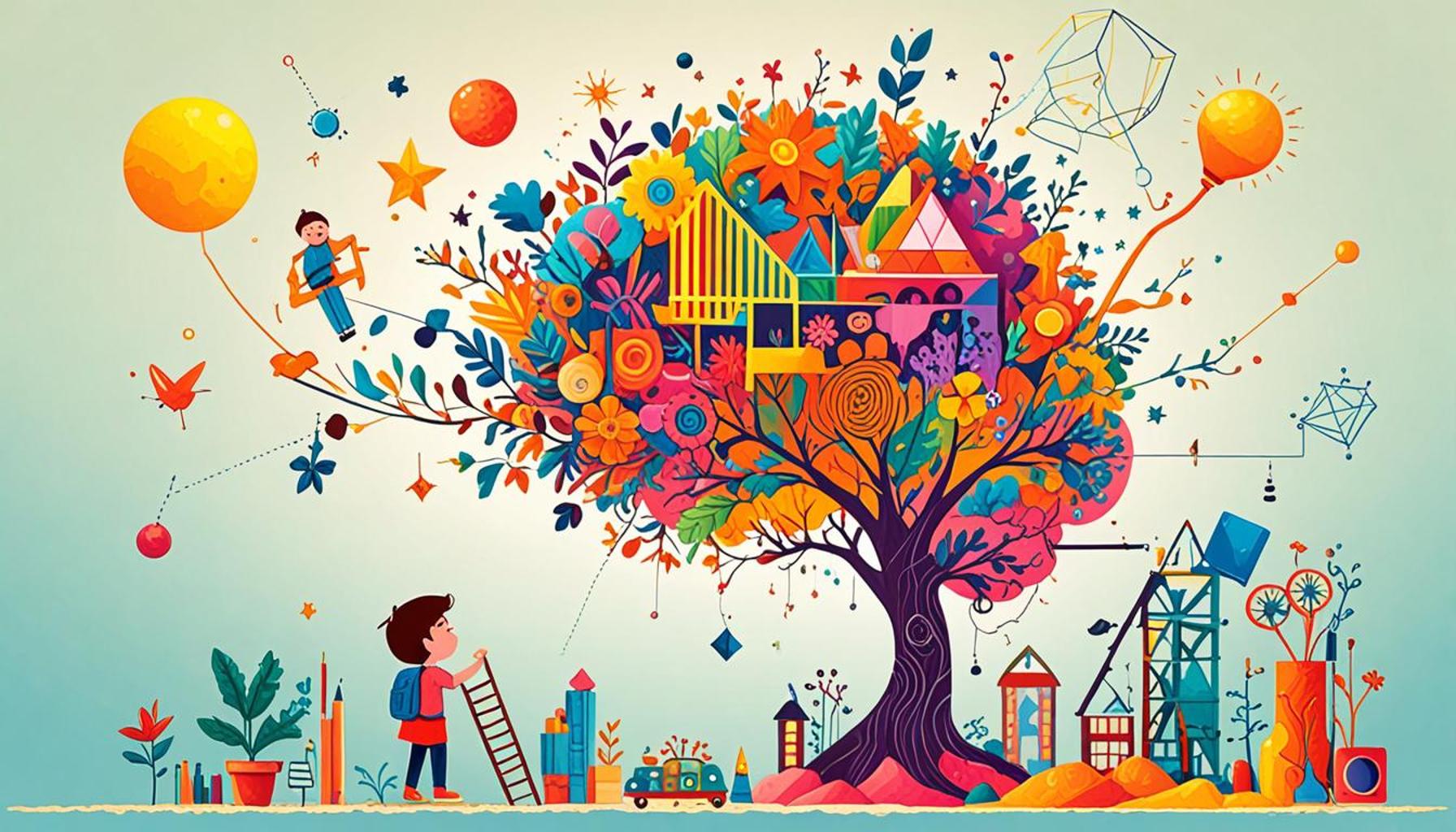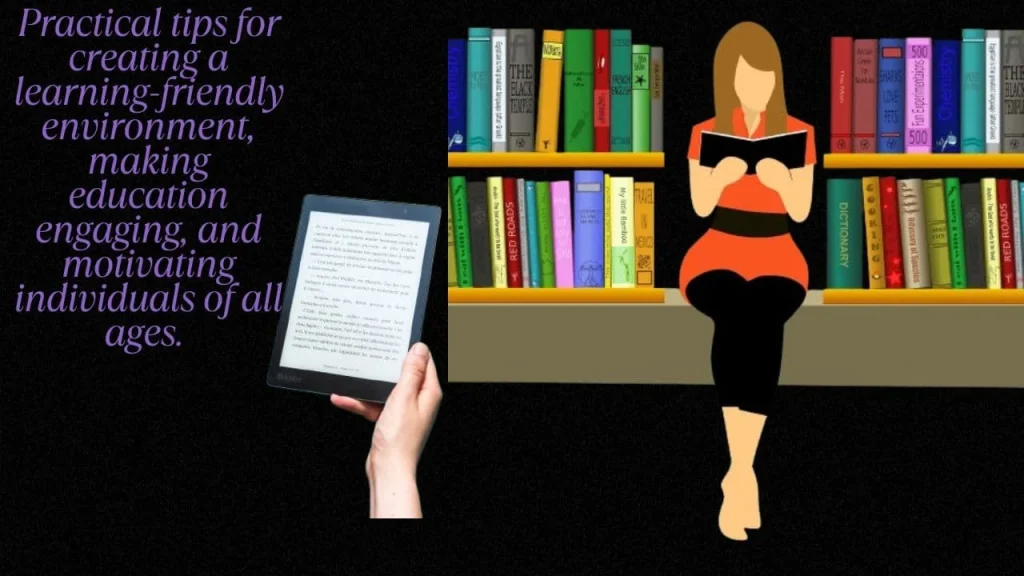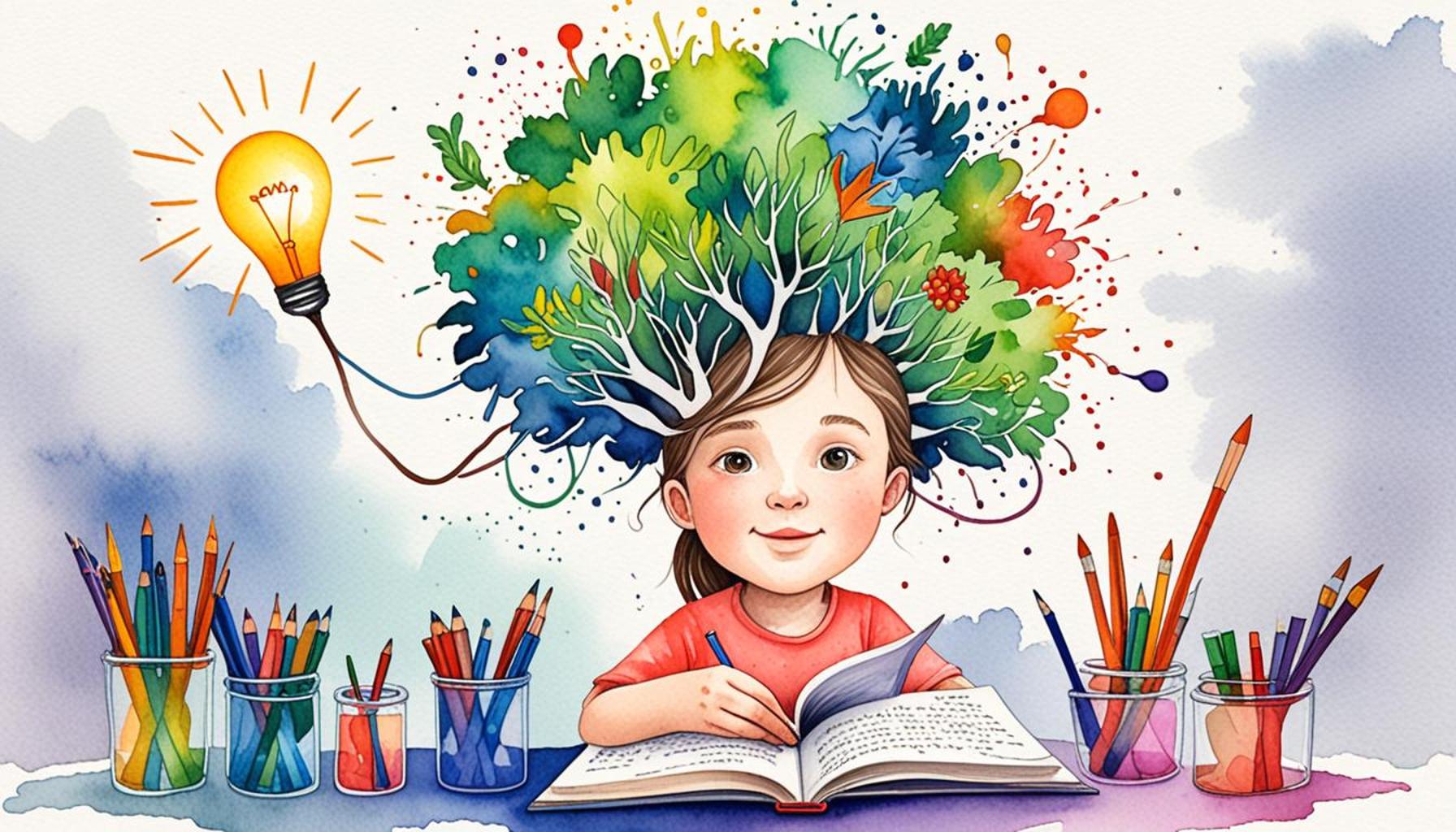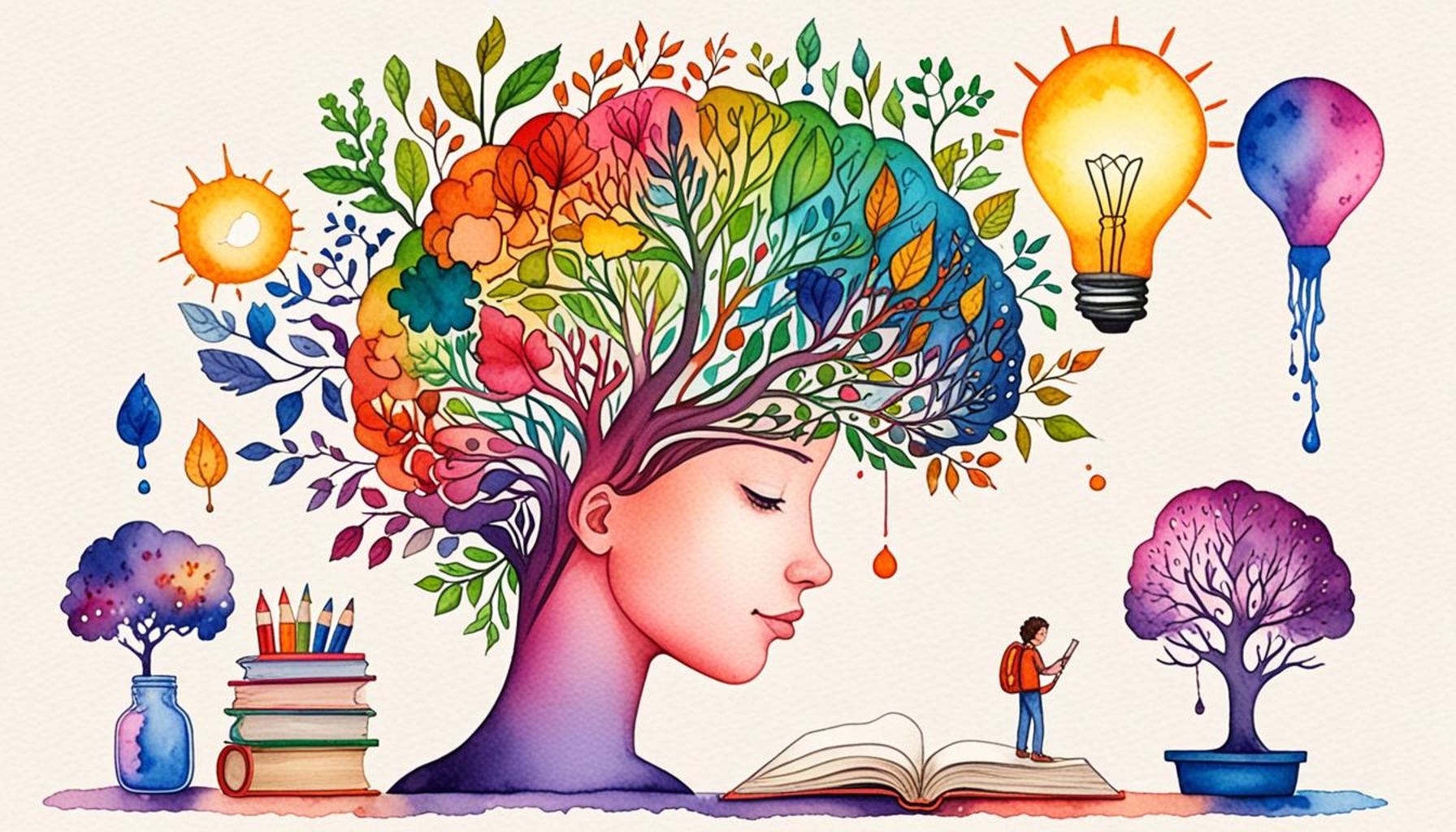The Role of Curiosity and Exploration in Developing a Growth Mindset in Educational Structures

Understanding the Role of Curiosity in Education
Curiosity serves as a catalyst for learning, pushing individuals towards the pursuit of new knowledge and insights across various fields. In educational settings, cultivating a sense of curiosity not only enhances student engagement but also lays the groundwork for a growth mindset. This mindset empowers learners to tackle challenges head-on and perceive obstacles or failures as valuable lessons rather than setbacks.
The benefits of nurturing curiosity in education are numerous, leading to holistic development of students. One critical advantage is the enhanced problem-solving skills that arise from inquisitiveness. Students who explore a variety of perspectives and solutions are better equipped to analyze complex situations. For example, a math student who enjoys investigating alternative methods to solve equations often develops a deeper understanding of the concepts compared to someone who adheres strictly to traditional methods.
Moreover, increased engagement is a natural byproduct of a curious classroom. When students feel encouraged to ask questions and explore topics of interest, they are more likely to participate actively in discussions, resulting in a dynamic learning atmosphere. For instance, in Nigerian classrooms, teachers who incorporate local cultural contexts or real-world applications into lessons create a learning environment where students feel connected and inspired to contribute.
Building Resilience Through Inquiry
Curiosity also fosters resilience in learning, teaching students the value of persistence. When faced with challenges, curious learners are more likely to try different approaches and seek out additional resources, which can lead to a longer-lasting understanding of the material. This characteristic is particularly relevant in Nigeria, where students often have to navigate complex social and educational landscapes.
In Nigeria, where educational paradigms are continually evolving, the integration of curiosity can dramatically transform learning experiences. Schools that prioritize inquiry-based methods have reported several advantages:

- Higher Academic Performance: Engaged and curious learners tend to achieve better academic results, as they are more invested in their education.
- Enhanced Social Skills: Collaborative learning promotes teamwork and communication, crucial skills in both personal and professional contexts.
- Cultural Awareness: Exploration fosters an understanding of diverse perspectives, which is essential in a culturally rich country like Nigeria.
In conclusion, implementing strategies that encourage curiosity and exploration not only enriches individual learning experiences but also cultivates a vibrant educational atmosphere. As we explore this topic further, the significance of nurturing curiosity within classrooms becomes increasingly evident, paving the way for a future where learners are well-equipped with the adaptability and critical thinking skills needed to thrive in an ever-changing world.
RECOMMENDED: Check out this similar article
Fostering a Culture of Inquiry in Nigerian Classrooms
In the quest to establish a growth mindset, the cultivation of curiosity must be prioritized within Nigerian educational frameworks. This endeavor goes beyond merely answering factual questions; it involves creating an engaging ecosystem where students feel empowered to explore, question, and challenge prevailing norms. By instilling a culture of inquiry, educators can significantly shift attitudes towards learning, redefining how students perceive their academic capabilities and potential.
One fundamental aspect of fostering curiosity is encouraging open-ended questioning. By prioritizing questions that do not have straightforward answers, teachers can inspire students to delve deep into subjects. For instance, instead of simply asking students to solve a mathematical problem, educators might present a real-world scenario where students must devise their own strategies for approaching the problem. Such tasks compel students to engage critically with the material, thereby enhancing their analytical skills while developing a growth mindset.
Furthermore, integrating project-based learning into the curriculum provides students with opportunities to explore complex topics in a collaborative manner. In Nigeria, initiatives that focus on community issues—such as environmental sustainability or local health challenges—allow students to investigate real-world problems in their immediate surroundings. This hands-on approach not only maintains curiosity but promotes a sense of ownership and responsibility among young learners. Research shows that when students work on projects that resonate with their lives, they are far more likely to remain engaged and motivated in their studies.
In addition, creating a supportive environment where failures are viewed as stepping stones rather than obstacles can spur curiosity. In many Nigerian classrooms, fear of making mistakes often stifles student participation. To combat this, educators must reinforce the idea that inquiry is a process rich with trial and error. For example, teachers can share stories of historical figures who encountered setbacks throughout their journeys but ultimately succeeded. Such narratives not only empower learners but also highlight the intrinsic value of perseverance in education.
- Key Strategies for Fostering Curiosity:
- Encourage open-ended questions that stimulate critical thinking.
- Implement project-based learning focused on local and real-world issues.
- Create a classroom culture that celebrates mistakes as learning opportunities.
- Utilize storytelling to establish connections between historical figures and students’ personal experiences.
To further nurture curiosity in educational contexts, teachers can also integrate innovative technologies into their teaching methods. Resources such as interactive apps and online collaborative platforms enable students to conduct research in an engaging manner. This integration not only modernizes approaches to learning but also caters to diverse learning styles, allowing students from different backgrounds to engage meaningfully with the material.
Ultimately, the role of curiosity and exploration in educational structures cannot be overstated. As Nigerian educators seek to develop a profound growth mindset among students, it is essential to establish an environment that promotes inquiry and engagement. By doing so, they do not only prepare students for academic success but also equip them with the skill sets needed to flourish in an increasingly complex world.
| Advantages | Educational Benefits |
|---|---|
| Fosters Exploration | Encourages students to seek knowledge actively rather than passively receiving information. |
| Enhances Critical Thinking | Develops analytical skills as learners question, hypothesize, and investigate various topics. |
| Promotes Resilience | Cultivates a mindset that accepts challenges as necessary steps toward learning and growth. |
| Increases Engagement | Engaged students are more likely to contribute to classroom discussions and collaborative projects. |
Curiosity acts as the driving force behind exploration in the educational realm. When students are curious, they are more inclined to embark on a journey of discovery, which is integral to developing a growth mindset. This foundation allows them to embrace opportunities for development and expansion of knowledge. Educational structures that emphasize curiosity provide students with the necessary tools to thrive in both academic and personal spheres.Moreover, exploration not only deepens understanding but also nurtures a sense of ownership over one’s learning process. The incorporation of open-ended questions in curricula can stimulate curiosity, prompting students to explore subjects in greater depth. Furthermore, fostering a classroom environment that encourages experimentation and inquiry-based learning creates the perfect backdrop for students to adopt a resilient approach to challenges. By developing these essential skills through curiosity, educators can prepare students to face an increasingly complex world. Ultimately, when educational structures prioritize curiosity and exploration, they create an adaptive learning culture. This culture thrives on the belief that knowledge is not just acquired but is also cultivated through questioning, exploration, and an unwavering commitment to growth.
ADDITIONAL INSIGHTS: Expand your understanding here
Empowering Students through Real-World Connections
In addition to fostering a culture of inquiry, another key strategy to enhance curiosity and exploration is to establish meaningful connections between academic content and the real world. When students can see the relevance of their learning to their everyday lives, they are more likely to engage and develop a growth mindset. In Nigerian contexts, such connections can be particularly impactful when they address pertinent societal issues.
For instance, subjects like science can come to life through initiatives that tackle local challenges such as water purification or waste management. Schools can partner with community organizations to facilitate hands-on projects where students not only learn scientific principles but also develop skills in problem-solving and collaboration. These projects not only enhance students’ understanding of the subject matter but also enable them to explore potential careers in science, technology, engineering, and mathematics (STEM) fields.
Moreover, incorporating experiential learning opportunities into the curriculum allows students to engage with the material dynamically. Field trips to local industries, environmental sites, or historical landmarks can ignite curiosity and foster a desire to explore beyond textbook knowledge. Such experiences not only deepen students’ understanding but also create lasting memories that resonate with their academic pursuits.
To enhance students’ exploratory skills, teachers can introduce interdisciplinary projects that merge various subjects. For example, a project that combines history and literature can encourage students to explore cultural narratives while analyzing the context in which these stories were formed. This approach prompts students to ask questions, develop hypotheses, and, ultimately, arrive at their conclusions by synthesizing knowledge from different fields.
Another remarkable avenue for promoting curiosity is through the incorporation of local storytelling traditions. Nigeria’s rich tapestry of cultures offers a wealth of narratives that can be tied to educational themes. When teachers weave these stories into lessons, they not only honor local heritage but also spark students’ imagination and curiosity about their environment. By exploring the cultural significance of traditional tales or the moral lessons embedded within them, students can develop critical thinking and reflective skills.
- Key Strategies for Empowering Students:
- Connect classroom learning to real-world issues faced by the community.
- Implement hands-on, experiential learning opportunities beyond textbooks.
- Encourage interdisciplinary projects that promote holistic understanding.
- Utilize local storytelling to ground lessons in cultural relevance.
Additionally, leveraging peer interaction can significantly enhance curiosity and exploration in classrooms. Collaborative group work not only builds communication skills but also encourages students to challenge each other’s thoughts and opinions. When students engage in discussions, brainstorm ideas, and construct knowledge together, they tap into each other’s insights, broadening their understanding and deepening their curiosity.
In the realm of technology, the use of digital tools may present a unique opportunity for Nigerian educators to cultivate curiosity. Platforms that facilitate research and inquiry-based projects can empower students to take charge of their learning, exploring diverse perspectives and solutions. For example, utilizing online forums to discuss societal dilemmas allows students to not just absorb information passively but engage creatively and analytically.
As educators in Nigeria pursue the goal of nurturing a growth mindset among students, the connection between curiosity, exploration, and learning must be firmly recognized. By integrating real-world connections, interdisciplinary approaches, and technology into teaching strategies, they can ignite the passion for learning that ultimately drives students toward success in their academic and personal lives.
SEE ALSO: Click here to read another article
Conclusion
In conclusion, the interplay between curiosity, exploration, and the development of a growth mindset is pivotal in reshaping educational structures within Nigeria. As educators adopt strategies that inspire curiosity through real-world connections and interdisciplinary learning, they create an environment that not only stimulates academic engagement but also prepares students to navigate future challenges. Emphasizing hands-on, experiential learning allows scholars to see concepts in action—bridging the gap between theoretical knowledge and practical application.
Moreover, the infusion of local storytelling traditions enriches the curriculum, fostering a deep appreciation for cultural heritage while enhancing critical thinking skills. The collaborative efforts among peers can further propel both curiosity and exploration, encouraging students to challenge assumptions and embrace diverse viewpoints. Alongside the integration of innovative digital tools, educators are uniquely positioned to empower students as they engage with complex problems and develop essential 21st-century skills.
Ultimately, this holistic approach not only nurtures a passion for lifelong learning but also instills resilience and adaptability in students. By prioritizing curiosity and exploration within educational frameworks, Nigerian educators are paving the way for future generations to thrive both academically and personally, ensuring they become proactive contributors to society. Embracing this transformative journey in education not only enriches students’ experiences but lays the groundwork for a brighter future that celebrates inquiry and innovation.



